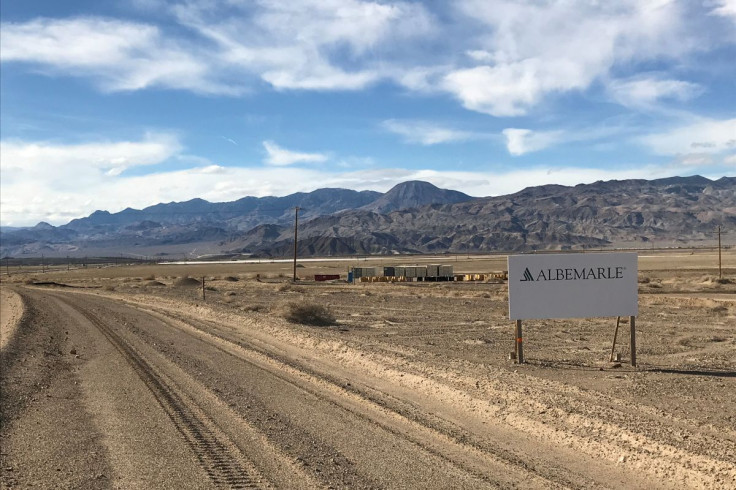Second Record-Setting Lithium Deposit In Nevada Announced

Nevada is now home to the two largest identified lithium deposits in the world, according to revised estimates released Thursday by lithium miner American Battery Technology Company (ABTC).
ABTC's Tonopah Flats project, located approximately 150 miles to the northwest of Las Vegas, sits on a leasing area with over 18 million tons of lithium in volcanic clay (enough to produce 2 billion average-sized electric vehicle batteries).
ABTC's resource estimate was revised upward from an assessment made in February of around 15 million tons. The new finding of over 18 million tons now places the size of the Tonopah Flats deposit ahead of the Uyuni salt flat in Bolivia, which remains the largest confirmed deposit of lithium anywhere in the world.
The Nevada-based company hopes to tap federal support for domestic battery manufacturing to accelerate the construction and licensing processes. ABTC already secured a $57 million grant from the U.S. Department of Energy (DOE) in October 2022 with funding from the Bipartisan Infrastructure Law, though additional future investment will be needed to cover the project's multi-billion dollar lifetime operating costs.
"Enhanced by the support of our US Department of Energy grants, the economics of this project are very compelling and result in a full project payback period of only 2.4 years," Ryan Melsert, CEO of ABTC, said to the Reno Gazette Journal on Thursday.
According to company estimates, the mining project will begin operation by the end of 2026, eventually producing 30,000 tons of lithium per year. This would put Tonopah Flats on a similar timeline as another major lithium play in Nevada: Lithium Americas' Thacker Pass mine in the north of the state, which expects to begin operation in 2026 and eventually produce 80,000 tons of battery grade lithium per year from the world's largest single identified lithium deposit (20-40 million tons).
The U.S. lithium industry has witnessed major developments in recent months—in addition to the two sizeable discoveries in Nevada, both of which were identified in 2023, in November the DOE announced the discovery of additional lithium deposits in California's Salton Sea region with an estimated 3.4 million tons of recoverable lithium assets.
The U.S.' lithium sector seems set for swift expansion in the upcoming years, driven by the rising sales of electric vehicles and the planned launch of several significant lithium extraction and processing facilities before 2030, subject to thorough environmental review, community dialogue and technological research and development processes.
''Having identified one of the largest premier lithium deposits in the US is extremely exciting," Melsert said in a company press release in early 2023. "However, the identification of an inferred resource in and of itself is not enough to address our critical challenges of increasing our domestic production of critical battery metals, reducing the costs of manufacturing of these battery metals, and decreasing the environmental impacts of their production."
The lithium industry in the U.S. certainly faces challenges relative to established players in leading producer countries like Australia, Chile, China and Argentina. But while it may not materialize in the near-term, U.S. dominance of the global lithium trade—as both consumer andproducer—remains a looming possibility.
© Copyright IBTimes 2024. All rights reserved.





















